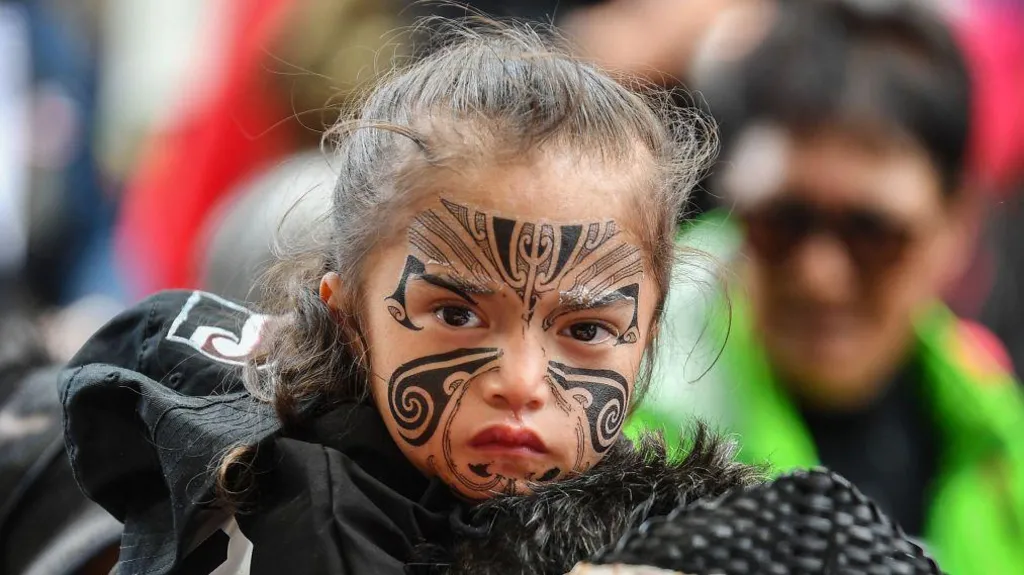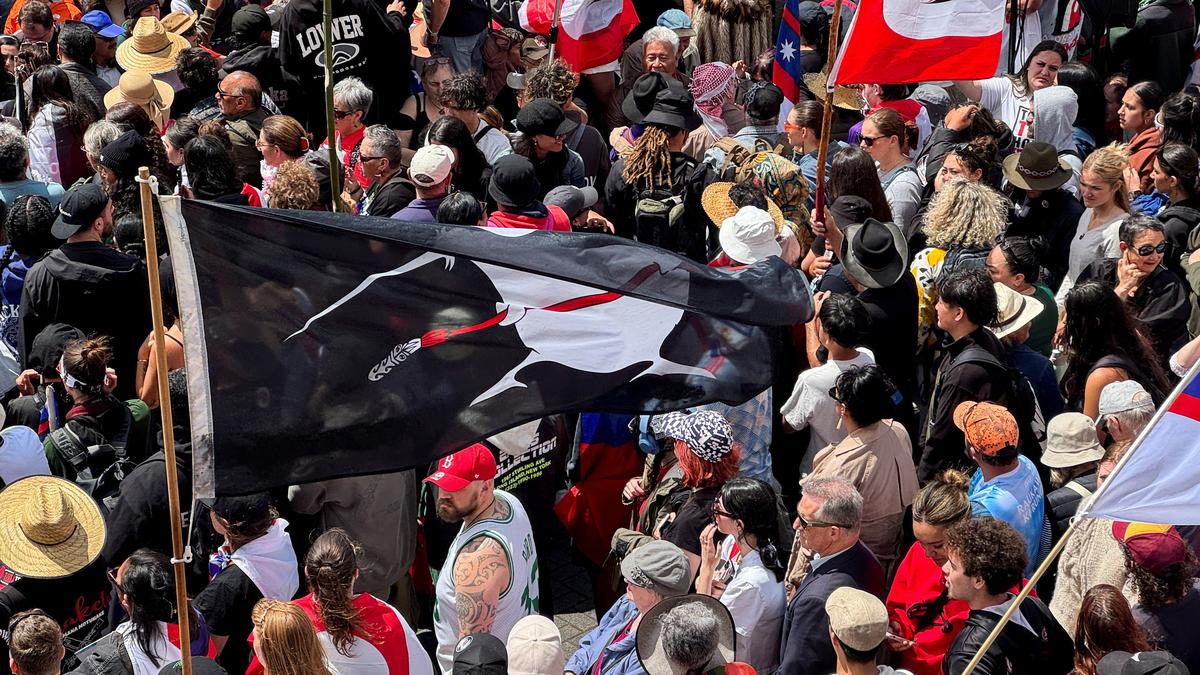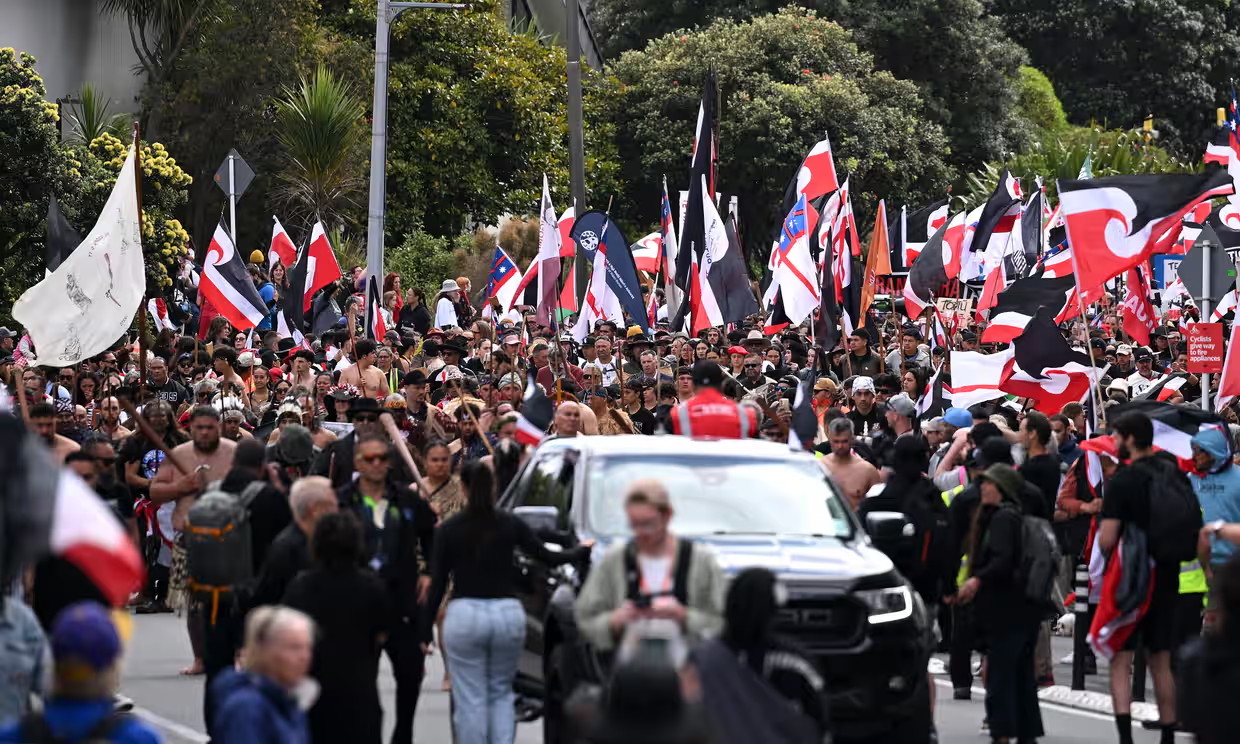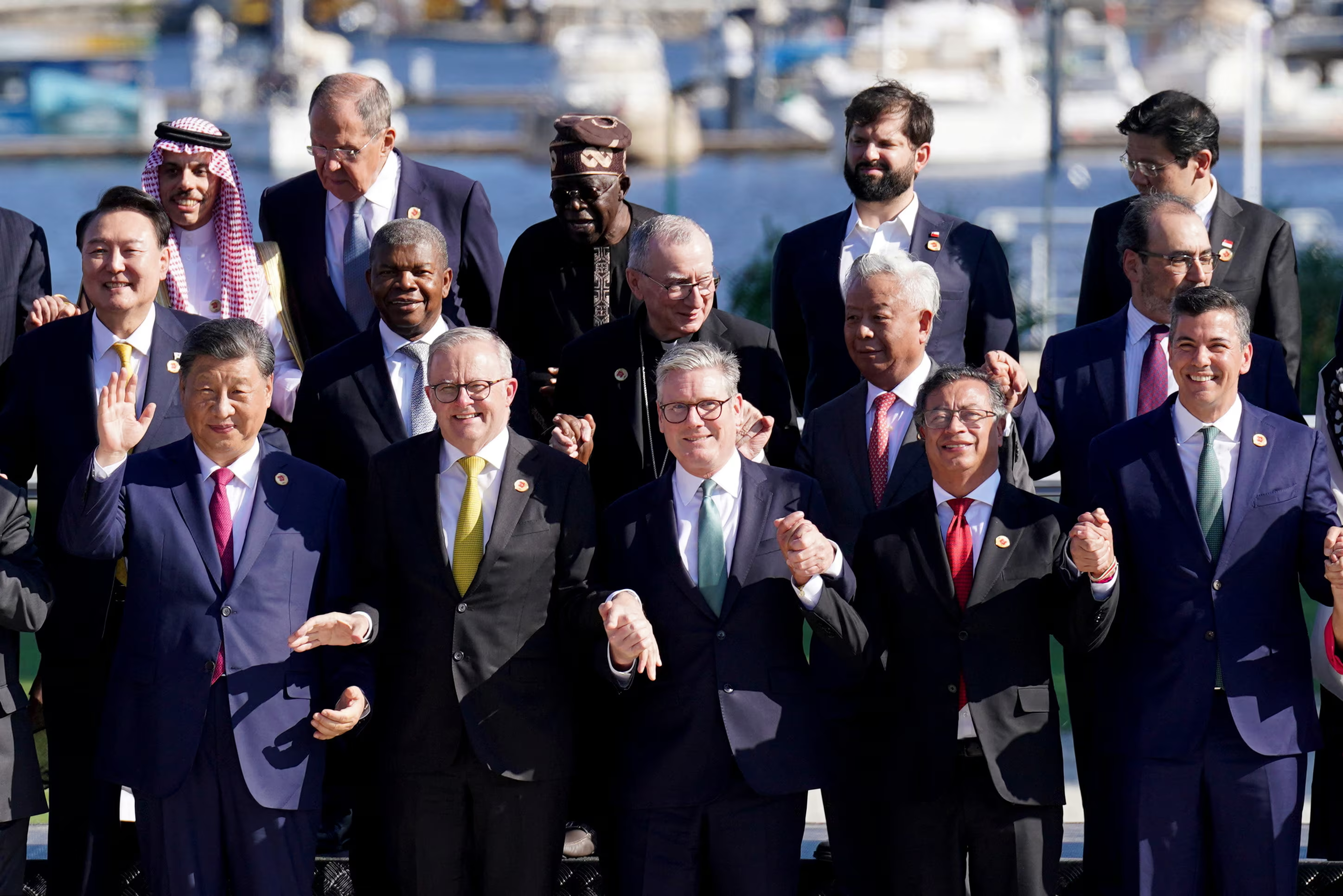- Home
- /
- News
- /
- Global News
- /
- Thousands flock to NZ capital in huge Maori protests
Thousands flock to NZ capital in huge Maori protests
11/19/2024
More than 40,000 people have protested outside New Zealand’s parliament against a controversial bill seeking to reinterpret the country's founding document between British colonisers and Māori people.
Tuesday's demonstration marked the end of a nine-day hīkoi, or peaceful protest, that had made its way through the country.
The Treaty Principles bill argues that New Zealand should reinterpret and legally define the principles of the 1840 Treaty of Waitangi, a document seen as fundamental to the country’s race relations.
Many critics see it as an attempt to take rights away from Māori people. Supporters of the change say the treaty no longer reflects a multicultural society.
Tuesday's march brought together activists and other opponents of the bill.
The hīkoi swelled to one of the biggest in the country's history, with many participants draped in colours of the Māori flag, as they marched through the capital Wellington.
It easily dwarfed the 5,000-strong crowd that turned up for land rights in 1975, and double the size of another major hīkoi in 2004, which rallied for shore and sea ownership rights.
Wellington's rail network saw what might have been its busiest morning ever as the hīkoi poured through the capital, according to the city's transport chair Thomas Nash.
The Māori Queen Ngā Wai hono i te pō led the delegation into the grounds surrounding the Beehive, New Zealand's parliament house, as thousands followed behind.
The bill is not likely to pass into law but the conversations and the division are set to continue. It will be another six months until a second reading.





















